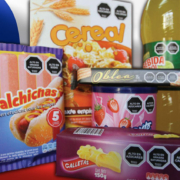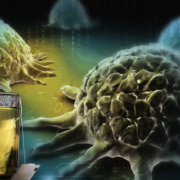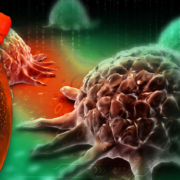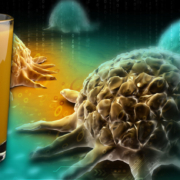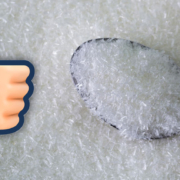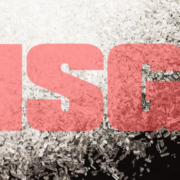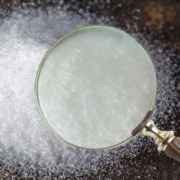Dr. Chet’s Health Memos
 If it’s in the health news today, I’ll be writing about it as soon as I read the research, both old and new. With my email Health Memos, you’ll know more about making lifestyle choices that will help you get and keep good health. These free, concise updates on health are emailed to subscribers twice a week. Subscribe today and get a free MP3, in English or Spanish, of Dr. Chet’s Top Ten Tips—Small Changes for a Healthier Life.
If it’s in the health news today, I’ll be writing about it as soon as I read the research, both old and new. With my email Health Memos, you’ll know more about making lifestyle choices that will help you get and keep good health. These free, concise updates on health are emailed to subscribers twice a week. Subscribe today and get a free MP3, in English or Spanish, of Dr. Chet’s Top Ten Tips—Small Changes for a Healthier Life.
Nutrition Education: The Best Solution
The scientific paper about nutrition education programs from South America was an opinion piece derived from a student’s dissertation defense. It addressed nutrition labels in Brazil: the labels were too focused on the caloric content instead of the ingredient information. The paper gives an example of two foods that have 97 calories but are vastly […]
Improving Nutrition in South America
One of the problems today with public nutrition education programs is that there’s an important element that would prefer it not be done. In fact, food manufacturers are doing all they can to avoid any approach that may impact sales of high-fat, high-sodium, high-sugar, and highly processed food. I get it—they want to sell as […]
How Can We Improve Nutrition and Public Health?
I recently read a couple of articles, one from a newspaper and another from a journal, that talked about South American countries and how their governments should deal with the obesity epidemic and how some are approaching this issue. There may be lessons we can use here for us in the U.S. and other parts […]
The Bottom Line on Sugary Drinks and Cancer
The question is simple: do we avoid all sugary drinks, including fruit juices? The best I can come up with is to withhold judgment and don’t get excited about it for now. Let’s take a look at what the concerns of the researchers were and then my concerns. Researchers’ Concerns The first is that the […]
Finding the Cancer Risk in Sugary Drinks
In Tuesday’s Memo, I reviewed the methodology of the NutriNet-Santé study in France. As I suggested, it was solid. The sugary drink choices included fruit juices, sodas, sugar-sweetened hot and milk beverages, sports drinks, and energy drinks. In terms of the data collection, I can’t think of anything they could have done better. Turning to […]
Is There a Link Between Sugar and Cancer?
Sugar has been in the news with the publishing of the latest results from the NutriNet-Santé study from France. The headlines of press releases suggest that drinking as little as four ounces of a sugary drink, including fruit juice, per day was related to an increased risk of getting cancer. Sugary drinks of all types […]
MSG Is Safe, But Be Wary
The controversy regarding MSG certainly won’t end with this Memo, but I want you to know what the research says so you can make an informed decision. There’s no question that some people have sensitivities to certain food additives, and I’m not diminishing that response in any way. My point in doing this series of […]
Early Research on MSG
People have been ranting against MSG for decades, but I never paid attention until I read a study on a group of subjects who said they had a negative response to eating Asian foods. The subjects were tested under four scenarios consecutively, dependent on their response to the prior test results. The study demonstrated that […]
A Closer Look at Monosodium Glutamate
People these days love salty, and as I’ve said before many times, I especially love salty: nuts, chips of any kind, cured meats such as ham. I believe if bacon weren’t salty, it wouldn’t be as popular as it is. Mix salt with amino acids, especially glutamine, and it creates a taste called umami. It’s […]
That Sugar Film: A Fantasy
Let me clear up a few things right away. I’m not a fan of overeating sugar, whether pure cane sugar or high fructose corn syrup. But glucose is the perfect fuel because it burns completely with only carbon dioxide and water as the by-products. I think what everyone should do is respect glucose for what […]


